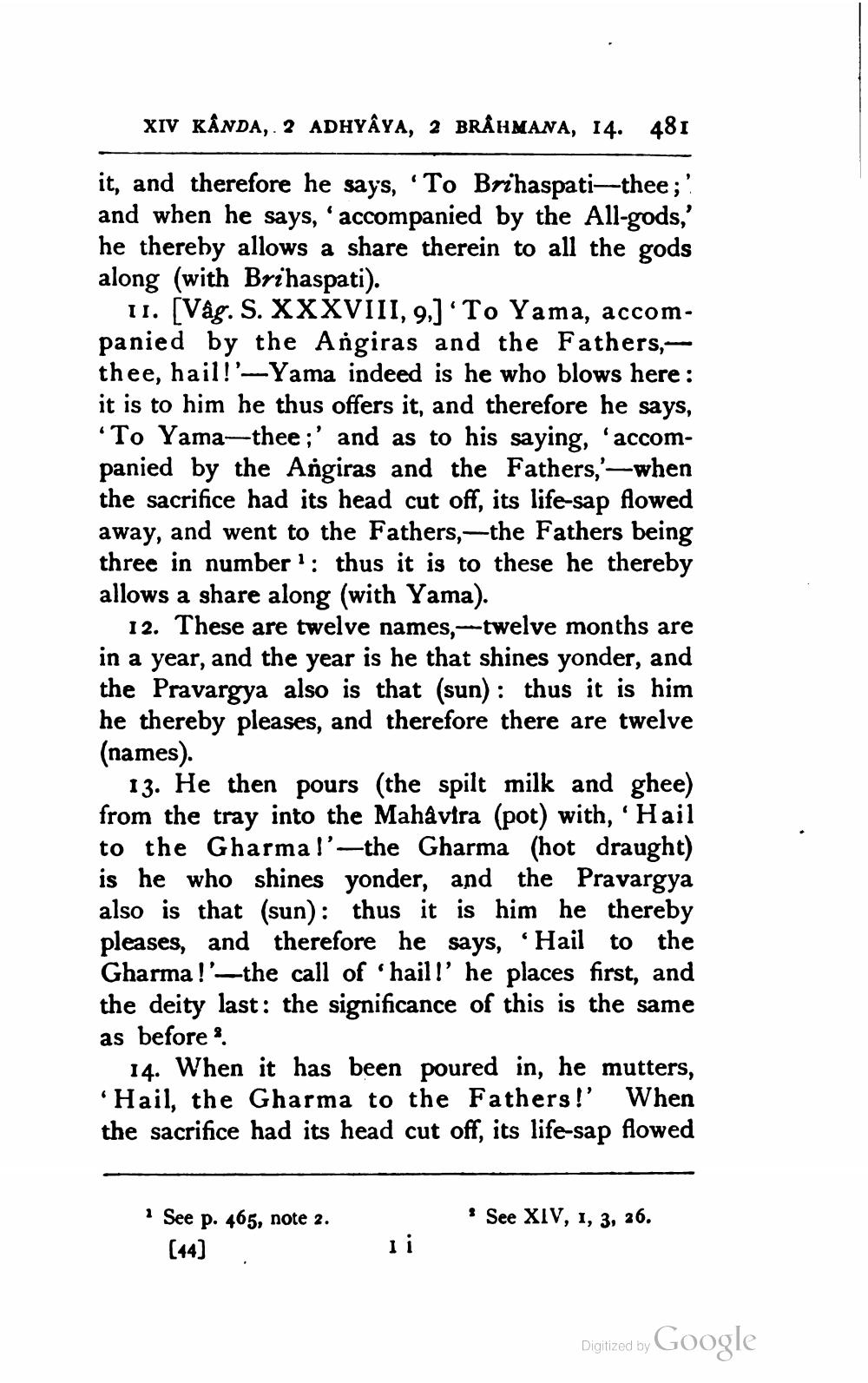________________
XIV KÂNDA, 2 ADHYÂYA, 2 BRÂHMANA, 14. 481
it, and therefore he says, “To Brihaspati—thee;' and when he says, 'accompanied by the All-gods,' he thereby allows a share therein to all the gods along (with Brihaspati).
1. [Vâg. S. XXXVIII, 9,] 'To Yama, accompanied by the Argiras and the Fathers, thee, hail!'-Yama indeed is he who blows here: it is to him he thus offers it, and therefore he says, "To Yama--thee;' and as to his saying, 'accompanied by the Angiras and the Fathers,'-when the sacrifice had its head cut off, its life-sap flowed away, and went to the Fathers,—the Fathers being three in number': thus it is to these he thereby allows a share along (with Yama).
12. These are twelve names,--twelve months are in a year, and the year is he that shines yonder, and the Pravargya also is that (sun) : thus it is him he thereby pleases, and therefore there are twelve (names).
13. He then pours (the spilt milk and ghee) from the tray into the Mahavira (pot) with, 'Hail to the Gharmal'—the Gharma (hot draught) is he who shines yonder, and the Pravargya also is that (sun): thus it is him he thereby pleases, and therefore he says, 'Hail to the Gharma!'--the call of 'haill' he places first, and the deity last: the significance of this is the same as before s
14. When it has been poured in, he mutters, ‘Hail, the Gharma to the Fathers!' When the sacrifice had its head cut off, its life-sap flowed
See XIV, 1, 3, 36.
* See p. 465, note 2.
(44)
ji
Digitized by Google




